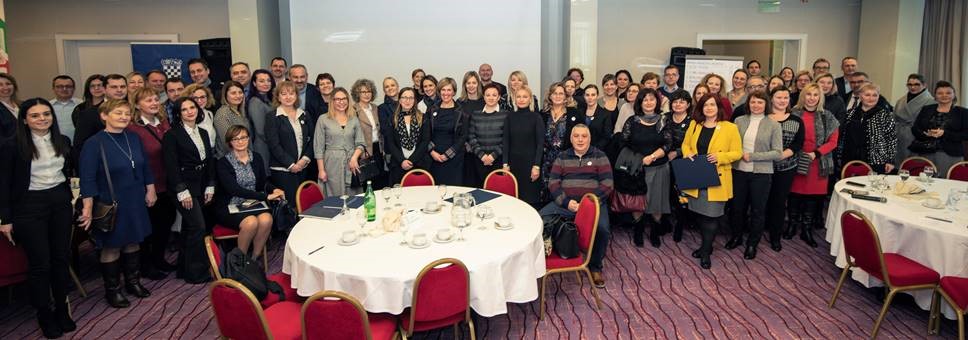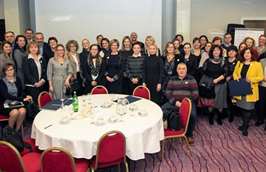01.02.2019.
As a partner of the Ministry, in cooperation aimed at decarbonisation of buildings until 2050, the Fund participated in the 2nd Open Partner Dialogue entitled “Energy Poverty”. The topic of the event was defining the criteria to establish energy poverty.
The aim of the 2nd Open Partner Dialogue was to define the energy poverty criteria that should be incorporated in the public calls for energy renovation of residential buildings, primarily of family houses, which the Ministry of Construction and Physical Planning plans to invite during 2019. The purpose of the criteria is to provide for the maximum percentage of grant funding for energy renovation of homes of energy-poor citizens.
In his welcome speech, State Secretary Željko Uhlir pointed out that the practice so far has shown the need for stronger inter-line communication and cooperation of the state administration bodies and the real sector.
As an introduction to the dialogue, Slavica Robić from the Society for Sustainable Development Design(DOOR) explained what exactly energy poverty was. This is the situation where individuals or entire households are not able to appropriately heat their homes or use other energy services at an affordable price. Research has shown that in 2012 as many as 54 million of EU citizens were not able to keep their homes sufficiently warm (10.8 % of European population). Particularly affected by energy poverty are Central-East and South Europe, meaning the area which includes the Republic of Croatia.
So far, the Environmental Protection and Energy Efficiency Fund has co-financed with HRK 4.8 million the projects carried out by UNDP and DOOR experts, who tackled the topics of energy poverty. In accordance with the 4th National Energy Efficiency Plan, the Fund has a role in financing the activities under the Programme for combating energy poverty that will define a list of available measures and the rates of co-financing individual measures. “Until 2020 more than 28 million kunas were planned for the implementation of the projects that should facilitate the programme implementation of objectives”, announced Irena Dubravec, head of Department at the Fund.
The open partner dialog and the “Charter on cooperation aimed at decarbonisation of buildings by 2050” was initiated by the Ministry of Construction and Physical Planning. Open partner dialogues gather the representatives of the state and local government, academic communities, and professionals, the construction and the energy sector, and related industries in theme workshops organised by the Ministry. The goal is to create a wide network of connected experts who are willing to participate in the dialogue and contribute to decarbonisation of the building stock until 2050.
The Charter deals with achieving energy and climate objectives at national and EU level through decarbonisation of the building stock, renovation of buildings and construction of nearly zero-energy buildings (nZEB), and establishes the importance of further reduction of GHG emissions, increasing the share of RES, improving energy security, and introducing innovations and smart technologies allowing the buildings to contribute to the overall decarbonisation of the economy. The signing of the Charter promotes continuous cooperation in the preparation of the long-term Strategy for the renovation of the national building stock and transition to the nZEB construction standard.







